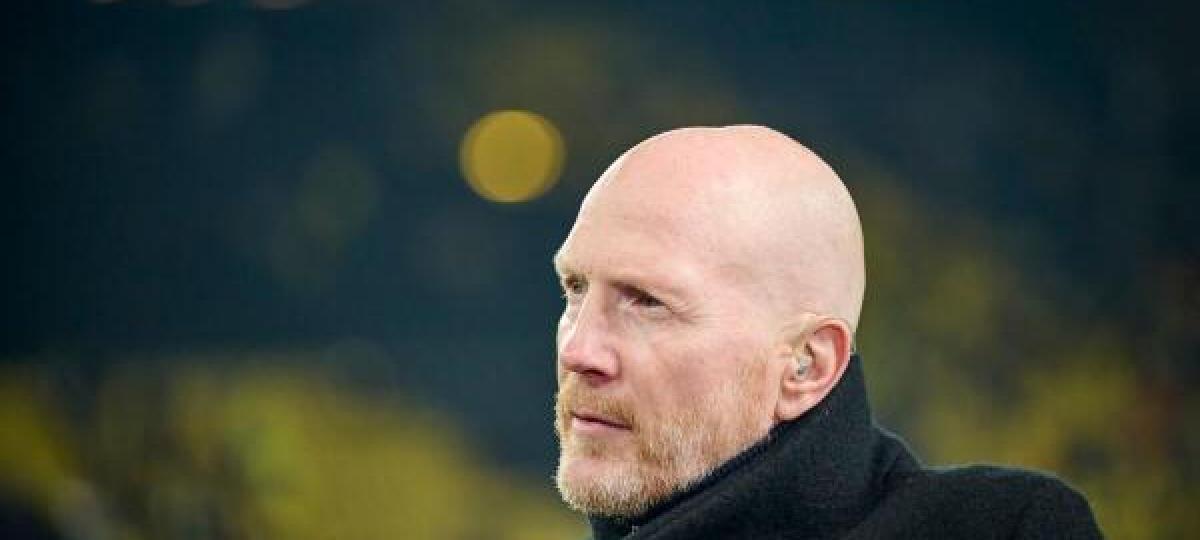Drones in the war. The West and NATO must equal to training Russia and Ukraine
Załużny is an interesting figure, he often expresses very specific views and without hiding speaks directly what he thinks. For example, at the end of 2023, he wrote a long text about why a great summer offensive in Ukraine ended in failure and what will be needed to win the war. This article caused a lot of controversy. At the same time, Załużny fell into conflict with the President of Ukraine Volodymyr Zelnski, mainly because of this text, and was dismissed from the beginning at the beginning of 2024. He is currently the ambassador of Ukraine in Great Britain, and when the presidential elections are finally taking place in Ukraine, it is believed that the Załużny can take part in them.
This time the Ukrainian wrote an article for the « Defense One » website. His main message is that Drones have become such an important weapon on the battlefield that we can talk about the technological revolution in the war. Currently, drones are responsible for over two -thirds of the victims on the front line. – NATO must rethink the concept of defending countries on its eastern flank – primarily the Baltic countries – warns the Danish military expert.
If we go back to the beginning of Russia’s full -glass invasion of Ukraine, this war was primarily an artillery war. Today, drones are the main weapon. What is the technological revolution in the war? A great example is gunpowder. When he was invented, there was a change in the history of military.
The widespread introduction of drones may not be a change in the era, which is why Załużny compares them to other technologies that revolutionized the war: introduction of radio communication, computers or satellites. These are innovations that led to the formation of precisely directed ammunition and provided better situational awareness on the front line and behind it; The appearance of such fundamental concepts for many Western armies such as network war and air-ladies. These concepts enabled fast wars, especially in Iraq and Afghanistan.
However, the era, in which technology has greatly facilitated quick offensive actions, ended with the appearance of drones: they allow defense operations with such persistence that it is practically impossible to take any action on the front line without immediate notice and attack by the enemy. Suddenly we went back to the times when the term « contemporary war » meant something similar to World War I. This is a very exhausting and static conflict.
Załużny then mentions the three main elements of this technological revolution:
- The first is the appearance of small tactical shock drones, which include not only flying drones, but also sea and land (vehicle) – the latter are in the development phase and in the coming years they will become an important part of the first -line operation.
- The second is the electronic fight, which is an important element of neutralizing hostile drones and ensuring the safety of our own territory.
- Thirdly, sensors platforms of various types monitoring the situation on the battlefield and ensuring clear situational awareness; It is they who in fact create a gray zone between the two fighting pages, which you can practically cannot be entered without being exposed to immediate notice and will become the target of the attack.
DROs of Ukraine control Russia. Cheap war
The main reason for this revolution, and thus a radical change in the way of waging the war, was the low price of drones. The FPV drone, the most popular device, costs ten times less than an artillery shell. And so, a country that did not have funds to wage the war, which is currently taking place in Ukraine, suddenly has it – thanks to the drones.
In the article, Załużny explains how all three elements of the technological revolution are connected into one Ukrainian battlefield management system called « delta ». It uses modern IT technology to collect data from various sources and provides the commander with key information about the battlefield. Delta is a very good system, there is no doubt about it. But Załużny exaggerates a bit about the uniqueness of Delta. There are other systems that can do the same, for example NATO Sitaware, which has similar functionality. There is no doubt that a good and fast battlefield management system, using modern IT technology, is a prerequisite for the effective use of drones in modern war.
Western armies are not ready for wars with drones in the lead roles?
Załużny ends his article with a sharp attack on Western military, partners of Ukraine in this war. As he writes, Western armies for decades enjoyed the dominance of many fronts in the wars that they had, but slept a revolution in martial art and stood out significantly from noticing its consequences.
So if we take NATO armies that currently operate and place them on the front line in Ukraine, they will be overwhelmed very quickly – they are not ready for such a challenge. The article by Załużny contains a drastic message, but I think this is an important message and we should take it seriously. There are still too many people in the West who believe that our army will be better on the front line than the Ukrainian army, because we will wage a real maneuvering war.
This is a dangerous assumption. I agree with Załużna that if we took a brigade from the NATO country and placed it today on the front line, it would be absolutely terrible, because the Western armies are not prepared for the war of drones, with which they would have to face.
It is sad that not all Western military managed it. To be honest, it seems that many of them are still functioning in a fantasy bubble, assuming that the golden standard of modern war is a kind of war consisting in fast maneuvers, already belonging to the previous paradigm.
I think that most of the Western armies would be surprised if I said it, because now everyone thinks that they discovered the meaning of drones and that they treat them very seriously. Because they follow the war in Ukraine. They saw films with drones and know that this is important and that you have to pay attention to it.
However, many Western representatives of the armed forces are wrong because they do not understand the scale and effects of this event. They still assume that they will operate in the paradigm of the maneuvering war, and perceive drones as a means to wage such a war. Therefore, they are not prepared for the war for the destruction, which they will actually have to face.
Drones in contemporary conflicts. It’s time to prepare because Russia understood their meaning
Unfortunately for the West, the Russians understand this. Ukraine has become a world leader in the field of drone war, but the Russians remain only a few months behind in terms of technology and doctrine. Western armies are summer behind.
Many people in the West treat the Russian army with some arrogance: what is the second army in the world if they cannot conquer small Ukrainian villages? You look at photos of individual infantry trying to go through the field and tell yourself: « How can this army be dangerous? » We have all this road, technologically advanced equipment, it is clear that we will win if there is such an attack.
This is the kind of arrogance that embraces every participant in the technology race when he sees his advantage. But we must understand that the actions of the Russian army may seem stupid to us from the point of view of NATO, from the point of view of war maneuvers. But God forbid us to come across this « stupidity » on the battlefield: the Russian army will gain a huge advantage because it will have unmanned technologies and put thousands of experienced drone operators.
For us, it is extremely important to start training on a large scale of drone operators and electronic struggle specialists – only then will we have a chance in a clash with the Russian army. Not to mention the fact that we, following the example of the Ukrainian army, absolutely need drones and their operators in each of the existing units. But we also really need special drone units, drone battalions and drone brigades that we would have placed on the battlefield.
And in these units, battalions, brigades, drone operators are the most important thing. The drone itself is only ammunition, cheap ammunition. We need to have experienced operators, they must appear in sufficient numbers in European armies – we see that the United States refuses to defend Europe and we understand that European armies may meet with the Russian army faster than we would like.
It is very important that we do not delude ourselves that we will fight the Russian army, using the doctrine created for the needs of the maneuvering war – we will have a hard, destructive fight, which will be fought against us mainly with drones.
We must urgently catch up with Russian and Ukrainian troops in this area.
Finally, I would like to think about what all this means for the relationship between defensive and offensive activities. It is important that we quickly adapt to the thought that now the advantage lies on the defensive side, and if the war breaks out, initially there will be some movement, but the fighting quite quickly stabilizes on the front line, which will largely be very static.
The hope of returning territories lost at the beginning of the war is small. NATO must rethink the concept of defending countries on its eastern flank – primarily the Baltic countries. Current defensive plans are based on the assumption that Russia may have an initial advantage in the war due to the proximity of the front line, but the Western troops will strengthen and liberate the Baltic States as soon as the preparation period ends. However, at a time when defensive activities are much more important than offensive activities, such an assumption is unreal.
NATO must understand that the lost territory will most likely not be returned. Russia’s attack must be stopped just off the border – Moscow cannot be allowed to take even a piece of land.
And in the long run we need to develop a way of conducting offensive operations in the era of drone war. This will be a challenge for the arms industry in the coming decades.
It is equally important that we think that this is now reality and that we must adapt to it as soon as possible. Otherwise we can end up like the French, facing the German instant war.
The article was based on the translation of the text from The Moscow Times. Its author is Anders Pukh Nielsen
Thank you that you have read our article to the end.
Stay up to date! Watch us in Google news.





